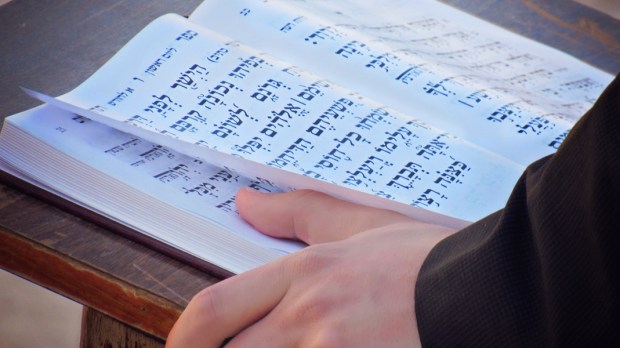Written in Hebrew, the first 5 books of the Old Testament are known as the Pentateuch, or the Torah. These books, originally written in Hebrew, tell the story of creation, the founding of Judaism, and the early struggles of the Chosen People. The Israel Institute of Biblical Studies says that there is much more to be explored in the Old Testament, for people of all faiths, through a firmer grasp of the Ancient Hebrew alphabet.
For instance, according to Jewish tradition, before Abraham was called by the Lord to follow the one true God, he began his life as a Mesopotamian idol worshiper named Abram. The idea of one monolithic God calling out to mankind was a dramatic shift in human understanding — something so momentous it required something new of Abram, himself: a new name. The Hebrew letter H (ה) appears twice within the name of God, YHWH (יהוה), and was thus added to Abram (אברם) as a divine seal that formed the name Abraham (אברהם).
Abraham, also spelled Avraham, denotes the phrase Av Hamon Goyim (אב המון גויים), meaning “father of a multitude,” a title God gave to Abraham in Genesis:
He took him outside and said: Look up at the sky and count the stars, if you can. Just so, he added, will your descendants be. (Gen 15:5) No longer will you be called Abram; your name will be Abraham, for I am making you the father of a multitude of nations. (Gen 17:5)
This new name is appropriate on two fronts, both because he would become the progenitor of the Jewish people, but also that his wife Sarai would finally bear him a child. Similarly to the addition of the letter H to Abram, Sarai’s name was modified as well by the Lord and she became known as Sarah (Gen 17:15).
Further along in the book of Genesis, Jacob is also renamed, but in much more dramatic fashion. After wrestling an angel of the Lord all night, God renamed him Yisrael, meaning “struggled with God.” It was from this point on that the Jewish people were known as children of Israel.
Understanding the holy language of the Bible can lead to a much deeper grasp of the text. Ancient Hebrew is a language far different than any language of the Western world and, lacking vowels, leaves much open to interpretation — a lot is lost in translation.
The Israel Institute of Biblical Studies offers courses in Biblical Hebrew, Biblical Greek, Biblical Aramaic, Modern Hebrew, and even Yiddish. As they say in their mission statement:
The Israel Institute of Biblical Studies aims to make the Bible accessible to people around the world. Through biblical study and language courses students connect with teachers in the Holy Land to learn the original languages of the Old and New Testaments. This allows them to interpret the holy texts themselves, while discovering the ancient land of the Bible where the stories took place.
If you’re interested in learning more about this ancient biblical language, visit their site here.

